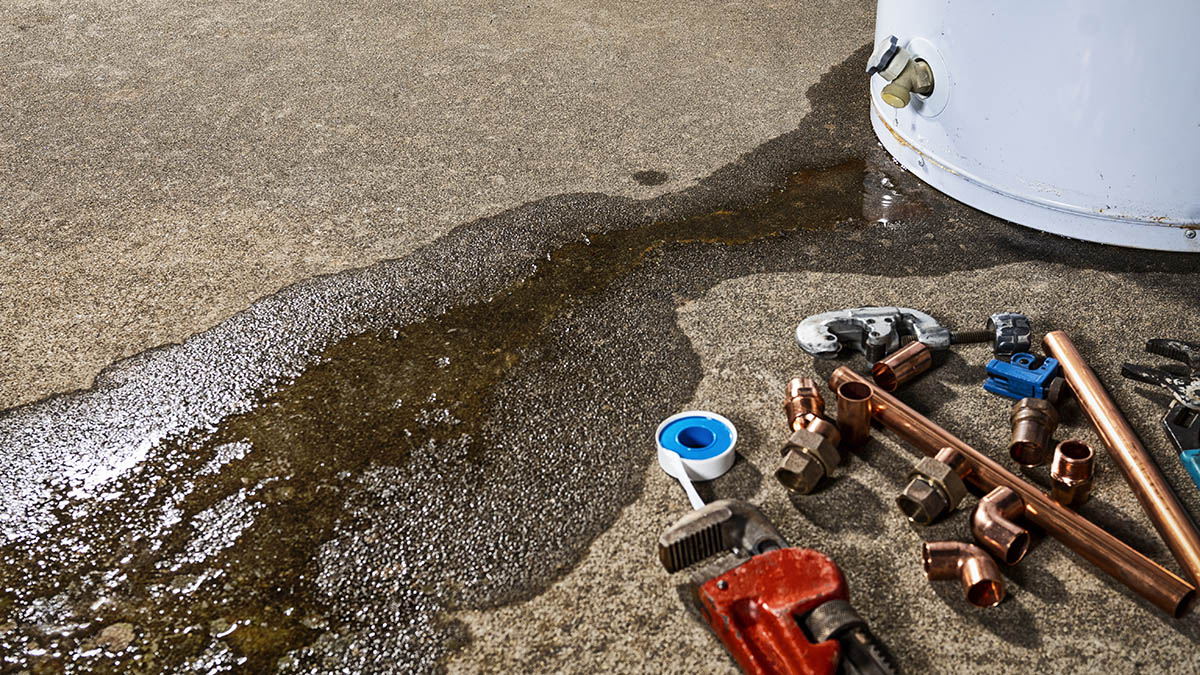
How To Know If Hot Water Heater Is Bad Or Starting To Fail
If there’s one thing to say about Arizona’s climate, it’s fairly consistent. From boiling hot days in the summer to freezing nights in the winter, there is certainly something for everyone – well, besides those that enjoy precipitation. Although the desert is more known for stifling air conditioners, issues with water systems often arise due to high temperatures and hard water. In fact, Phoenix residents don’t even have to heat their water most of the year. At the same time, many don’t even know if a hot water heater is bad or failing until they need or desire it the most.
In Arizona, hot water is definitely taken for granted. Each winter reminds us just how much value it brings. People will tell you they could go without hot water here (because ice is coveted for 7 straight months), but after a few nights of freezing temperatures, most are jonesin’ for a hot shower. This is why sound plumbing systems are important in Arizona. If you’re going to prepare an AC unit for the summer, then why wouldn’t you want to know if your hot water heater is defective?
Signs a Hot Water Heater is Going Out or Failing
As the winter months approach and the nights become cooler, you’re going to want to keep an eye on how your water heater is doing. Any inconsistency should be noticeable. If you’re not quite sure how to know if a hot water heater is going bad, then here are some obvious signs worth looking into.
1. Um, Where is the Hot Water!?
This might seem like common sense, but if you’re not getting enough hot water, it’s a sign that there is a problem with your water heater. Of course, having no hot water at all is blatant, but what about when your heater is taking too long to heat up and isn’t providing hot water for more than a few minutes? If you’re getting a limited supply of water and still haven’t called a plumbing professional then it’s only a matter of time before it stops heating water completely.
If you’ve started noticing that your hot water heater isn’t performing as it once did, don’t wait to do something about it. While a limited supply of hot water may not be a big deal to some of you, certain issues with the heating system could pose dangers to those within the property.
2. Are You Getting Too Much Hot Water?
Aside from a hot water drought, water heaters that spew out boiling water is also a problematic sign worth looking into. Before you jump to any conclusions, be sure to check what temperature the thermostat is set to. We often tend to turn up the thermostat in winter, and once the warmer weather comes, we forget to turn it back down. Curious children have also been known to touch the temperature dial.
If it is set too high, just lower the temperature and ensure it doesn’t happen again. Sometimes, a few minutes of education can prevent disaster. If the thermostat is already set to a reasonable temperature, but you’re still enduring a boiling shower, there could be a potential wiring issue. If you want to prevent the problem from getting any worse, scheduling a professional inspection is the best thing you can do. While this may be an easy fix, it’s also a common sign a hot water heater is bad or starting to fail.
3. Does Your Hot Water Smell Kind of Funky?
Not all water heater problems have to do with wiring. Sometimes, your water heater becomes infected with bacteria, causing the water to become pungent – as you can imagine. If you start to smell rotten eggs coming from your water, this is a sign that the water heater is no longer clean. At the end of the day, this could put the health of you and your family, or those within the building, at risk.
The hazards that come with a filthy water heater should encourage most of you to quickly have it purged with hydrogen peroxide. If cleansing your water heater does not fix the problem, there may be a bigger problem at hand. This could be anything from broken sewage lines to faulty systems. A professional diagnosis from a certified water heater maintenance technician will help you safely remove the problem for good.
4. Is Your Hot Water Murky and Brown?
If your water is coming out discolored, this is a very bad sign. While it might not necessarily be because the hot water heater is bad (bad pipes can cause discoloration, too), it is in your best interest to check the heater first. In all honesty, the water in Arizona is pretty hard, so it could just be some built-up sediment coming through into your water.
However, if the discoloration is a bit reddish, there could be some rusting components inside the heater. No matter what the cause, you will want to flush out your water heater, drain it, then refill it with fresh water. Having the equipment regularly serviced will help you prevent rusty water and costly repairs or potential replacements.
4. Strange Clunking Noises Coming From Plumbing?
Water heaters make noise; there’s no denying it. While you shouldn’t run out and buy a new one just after hearing slight whirring, water heaters that continue to get louder and louder should be checked out. Rumbling, booming, and clanking sounds are not common and should not be ignored. In most cases, this indicates a problem with your heater’s heating elements.
Whether the culprit of the noise is a delayed ignition or built-up sediment that is burning at the bottom of the heater, the issue is not just going to go away on its own. If the hot water heater is bad, it’ll just get worse. Leaving this for too long will destroy the heating element and ruin your water heater – inevitably forcing you to spend far more than necessary.
5. Is Water Pooling Up Around the Tank?
If you start to notice water pooling around your heater, this is usually a telling sign that there is a leak. Leaks are among the most common problems with hot water tanks but not always a sign it’s bad or failing; nevertheless, they should still be taken seriously. Before you call a maintenance service, first check to see that the water isn’t coming just from condensation (this is common in Arizona).
To do this, you’re going to need to turn off the system and let it sit for a few hours. From here, inspect the hookups to see if water is still dripping from the heater. If not, condensation is the culprit. If water is still pooling below, you probably have a leak. Be sure never to leave a leak too long, as it can be potentially dangerous – especially if your heater is electric. A professional repair service, like ours, will check your valves, connections, and tanks in no time.
Water Heater Help With Canyon State Plumbing
We understand that being stuck without hot water in the dead of winter is no laughing matter. It can be frustrating thinking about repairs or purchasing a new unit. With that being said, it’s important that you understand the risks involved in fixing major problems with your water heater by yourself. Don’t forget that these are sensitive pressurized mechanical devices that can cause serious injury.
For the sake of safety, let the professionals at Canyon State take care of it for you. We believe we’re one of the few premier HVAC and plumbing service providers in Phoenix, Arizona. If you think your hot water heater is bad or starting to go out, a knowledgeable member of our team is always standing by to help.

